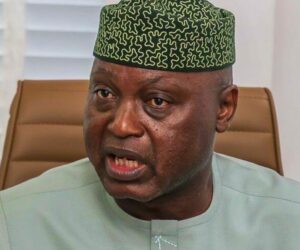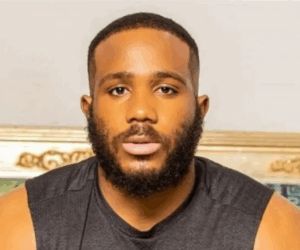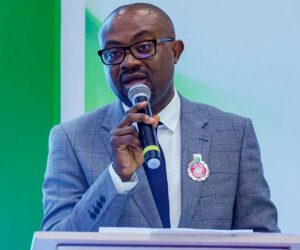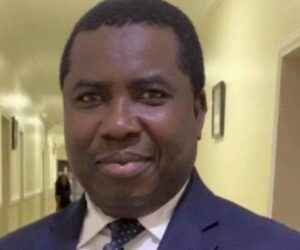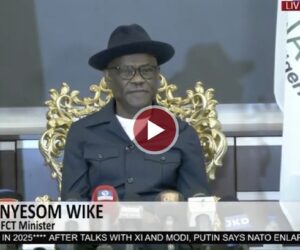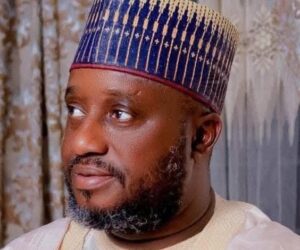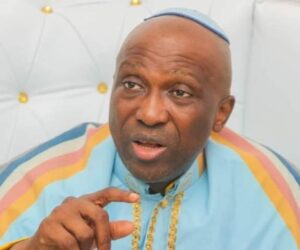Former Vice President Atiku Abubakar on Monday formally registered as a member of the coalition-led African Democratic Congress (ADC), marking what both party leadership and political analysts describe as a defining moment in the opposition’s preparations for the 2027 presidential race.
Atiku picked up his membership card at Jada Ward 1 in Jada Local Government Area of Adamawa State.
SPONSOR AD
Speaking shortly after the exercise, he declared: “Now I have picked my membership card of the ADC. Now, the real opposition has begun. We will chase the APC out of government.” He urged his supporters nationwide to follow suit and register with the party.
Adamawa State ADC Chairman, Shehu Yohanna, said Atiku’s formal registration marked the launch of a statewide mobilisation effort to expand ADC membership. “His registration has signalled the unveiling of statewide registration of members into the party,” Yohanna told journalists, calling on citizens, particularly youths and women, to take advantage of the opportunity and align with the ADC.
This development puts to rest months of speculation over whether the former vice president would officially take up membership in the coalition-led party following his resignation from the Peoples Democratic Party (PDP) in July 2025. It also formally activates the political transition he had been championing in recent months after stepping aside from the PDP, which he has repeatedly accused of lacking readiness to challenge the ruling All Progressives Congress (APC).
Among top Adamawa coalition members present at the brief but symbolic ceremony were former Governor Bindow Jibrilla; Senator Aishatu Dahiru Binani; Senator Abdulaziz Nyako; and Senator Ishaku Abbo, signalling early cohesion around Atiku’s movement.
ADC: Atiku’s action will encourage sceptics
Commenting on the development, the National Publicity Secretary of the ADC, Bolaji Abdullahi, said the party welcomed Atiku’s decision to formalise his membership, noting that it would boost the confidence of others still hesitant to fully commit to the coalition.
“For us in the party, it is nothing new because Alhaji Atiku Abubakar has been one of the leaders of the coalition from the start. So, it’s not surprising to us. What he did today (Monday) was just formality, but it’s an important formality,” Abdullahi told Daily Trust.
“It encourages us, and it would inspire so many other people who are sceptical or tentative. Now we expect that this will encourage such people. But for us, it’s not entirely a new thing.”
Asked what Atiku’s expected run for the ADC presidential ticket means for the party’s 2027 strategy, Abdullahi maintained that the leadership had not yet made any formal decision. “Our position has not changed. When the time comes, the party leadership will decide on the best approach,” he said.
However, a faction of the ADC led by Nafiu Bala swiftly disowned Atiku’s registration, insisting it did not comply with the party’s internal processes. In a statement issued in Abuja by the ADC Director of Media and Public Affairs, Christopher Okechukwu, the faction said the exercise was illegitimate.
“This registration was conducted by individuals not recognised by the ADC’s National Headquarters and therefore lacked authority to register new members,” Okechukwu stated.
He urged the former vice president to complete his registration through the “duly constituted and authentic party executives in his locality,” stressing that the ADC “is not a vehicle for personal ambition but a movement committed to democratic renewal.” He added that Atiku would have full membership rights once he finalised the process with the authorised ward structure.
Analysts: Atiku’s move signals ambition
A former vice president of the Nigerian Political Science Association (NPSA), Professor Kamilu Sani Fage, who spoke to Daily Trust, said Atiku’s decision to join the ADC formally confirms his intention to contest the 2027 presidential election.
“In the first place, it shows his intention to contest. He has consistently sought the presidency, and I think he’s not likely to give up his ambition. That is one of the reasons why he left the PDP,” he said.
He noted that Atiku’s political journey since 1999 has been characterised by strategic movement across parties, often reflecting his pursuit of viable platforms.
“Since 1999, Atiku has been in and out of PDP, joined AC, returned to PDP, left again to APC and back to PDP, and now to ADC. So, this is his nature of politics,” he said.
He added that while the move gives Atiku a viable platform, it also presents fresh challenges, particularly with figures such as the 2023 Labour Party presidential candidate, Peter Obi, who has already signalled interest in running again in 2027 and is expected to officially join the party in the coming days. Similarly, former Rivers State governor Rotimi Amaechi has already defected to the ADC and expressed his intention to seek the party’s presidential ticket.
Many political analysts believe that dynamics within the country’s rotational presidency may tilt the ticket towards a southern candidate, arguing that President Bola Ahmed Tinubu, a southerner, would have completed what is expected to be the first four years of an eight-year southern presidency, before power rotation discussions are likely to favour the North.
“It will not be an easy task. There could be other contestants interested in the ticket. Joining ADC does not automatically guarantee him the platform. And even if he gets it, it doesn’t mean he can easily win the election. He has to do a lot of work to carry the party and to make himself sellable to Nigerians. Wrestling power from the ruling party will require significant strategy,” Fage said.
Another political and public affairs analyst, Dr Saidu Dukawa, said Atiku’s registration did not come as a surprise. He noted that many of his longstanding associates have already joined the ADC, enhancing his viability on the platform.
“Given his political trajectory, one can assume he stands a chance of contesting again because of the large number of his political associates already in the ADC. His chances may also be brighter because of the internal crises bedevilling the PDP,” Dukawa said.
He warned, however, that the opposition landscape may become more complicated. “The opposition’s chances will be slightly affected in the sense that now there will be two major opposition parties rather than one. However, if both agree to work together as a coalition, the weakness may be minimised—or even turned into strength.”
Atiku’s aide: 2027 process has just begun
Paul Ibe, media aide to the former VP, told Daily Trust that the registration marked the beginning of intensified efforts to build ADC into a credible alternative for Nigerians ahead of 2027.
“The 2027 process is just beginning. Asking about his ambition is like putting the cart before the horse,” Ibe said, when asked if Nigerians should expect a formal declaration of ambition now that he has formalised his registration.
“What is most important for my principal now is to continue to work with all the other leaders of the ADC to ensure that the party is able to overcome every agenda of the ruling party to not allow opposition to thrive,” he added.
He alleged that there are ongoing plots to use the judiciary to distract the coalition but insisted that Atiku and other leaders were focused on providing Nigerians with a viable alternative.
“It is about the existential threat to democracy that this ruling party stands for. My principal and other leaders of the ADC are working to ensure democracy not only survives but continues to stand strong and offer its dividends to Nigerians,” he added.
Atiku’s political journey
Atiku’s move to the ADC represents the fourth major party switch in his political career since Nigeria’s return to democratic rule in 1999.
He served as vice president between 1999 and 2007 under the PDP. Following a fallout with then-President Olusegun Obasanjo, he left the party in 2006 and contested the 2007 presidential election under the Action Congress (AC). He returned to the PDP in 2009, but defected again in 2013, joining forces with Muhammadu Buhari, Bola Tinubu, Bukola Saraki, Nasir El-Rufai and others to form the APC.
Though he sought the APC presidential ticket in 2015, he lost out to Buhari. The alliance, however, succeeded in dislodging the PDP from power in the 2015 general elections.
Atiku rejoined the PDP in 2017 and ran for president under its platform in 2019 and 2023, losing on both occasions. In July 2025, frustrated with what insiders described as irreconcilable internal divisions, he exited the party once again and has now officially anchored his 2027 bid within the coalition-led ADC.
Analysts say Atiku’s move formally activates the opposition realignment process ahead of 2027. While his critics point to age, past defeats and his history of party-switching, his supporters argue that his political resilience, national network and international profile remain unmatched among opposition figures.
As a Nigerian living here or in the diaspora, DO YOU HAVE A PLAN B? Just in case anything goes wrong, is there a side business you can fall back on? We show you step by step how you too can start earning US Dollars consistently. Nigerians can now make as much as $20,000 to $35,000 with premium domains. Ideal for business owners, entrepreneurs, and workers.
Click here to find out how it works


